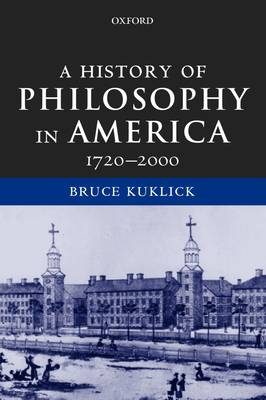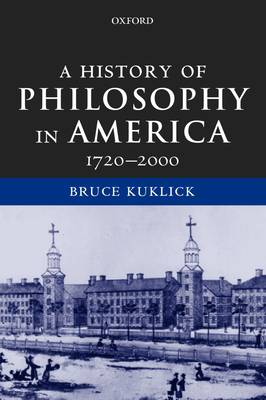
- Afhalen na 1 uur in een winkel met voorraad
- Gratis thuislevering in België vanaf € 30
- Ruim aanbod met 7 miljoen producten
- Afhalen na 1 uur in een winkel met voorraad
- Gratis thuislevering in België vanaf € 30
- Ruim aanbod met 7 miljoen producten
Zoeken
Omschrijving
Here at last is the only up-to-date history of American philosophy, an American counterpart to Bertrand Russell's History of Western Philosophy. In this fascinating volume, the eminent historian Bruce Kuklick tells the story of the growth of philosophical thinking in the United States, in the context of intellectual and social change. He sketches the genesis of these intellectual practices in New England Calvinism and the writing of Jonathan Edwards. He discusses theology in the eighteenth and nineteenth centuries and the origins of collegiate philosophy in the early part of the nineteenth century. We see the development of secular preconceptions and the emergence, after Darwin's writings of the mid-late nineteenth century, of forms of thought hostile to religion. All of the great American thinkers are portrayed and their contributions to philosophy assessed--from Charles Peirce to William James, John Dewey to C. I. Lewis, and Wilfrid Sellars to W. V. Quine. The work brings us right up to date with the first historical treatment of the period after pragmatism, and the fragmentation of philosophy in the second half of the twentieth century. The author steers a controversial course between the divergent views that historians and philosophers take of the significance of philosophy in recent years.
Specificaties
Betrokkenen
- Auteur(s):
- Uitgeverij:
Inhoud
- Aantal bladzijden:
- 344
- Taal:
- Engels
Eigenschappen
- Productcode (EAN):
- 9780199260164
- Verschijningsdatum:
- 24/04/2003
- Uitvoering:
- Paperback
- Formaat:
- Trade paperback (VS)
- Afmetingen:
- 156 mm x 238 mm
- Gewicht:
- 498 g

Alleen bij Standaard Boekhandel
+ 131 punten op je klantenkaart van Standaard Boekhandel
Beoordelingen
We publiceren alleen reviews die voldoen aan de voorwaarden voor reviews. Bekijk onze voorwaarden voor reviews.











